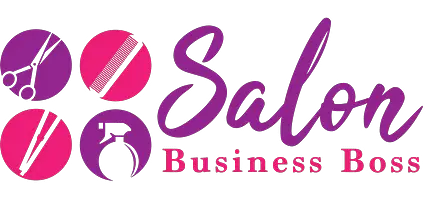Renting out the chairs or booths in your salon rather than hiring employees is becoming a popular way of running a salon. It eliminates certain responsibilities as an owner and can simplify the ownership process. Renting out booths does mean that the people you rent to are not employees, which changes the dynamic of owning a salon and how you can hire and fire those to whom you rent.
The top 10 things you need to know about hiring and terminating/firing a booth salon renter are:
When hiring a salon booth renter define what the contractor can expect, create a hair salon booth rental agreement, have a lawyer look at or write the rental agreement contracts, and maintain separate duties from your renters. To evict a salon booth renter you need to research your state’s requirements, refer to your rental agreement, set up a private meeting, learn how to provide the eviction notice, and document everything that may be needed in any future legal matters.
While the process of hiring and firing is different when you rent out your salon booths, there are still several ways to ensure that you get the best people in your salon. There are also ways to eliminate potential problem renters that differ from how you would do it if they were employees.
Hiring Independent Booth Renters
One of the most important things to remember when looking for hairstylists to rent a booth to is that they are not your employees. You will have zero say over their hours, clientele, and use of products. In this scenario, you are more of a landlord than an employer, which changes the hiring process. Fortunately, there are several ways to ensure you get the best stylists working in your salon.
Find the Right People

The hair salon industry became a 39.5 billion dollar industry in 2021, with nearly 900,000 businesses in the industry. More than a few hairstylists are looking to make their name by branching out with their business, and this fits the rental model perfectly.
Advertising on social media and websites should provide you with a bevy of offers for your salon booths, but if that alone isn’t providing you with enough renters, you should also go to some hair shows to find the right hairstylists there. Contacting cosmetology schools can also up the number of renters you’ll find. Just be sure all of the renters are licensed cosmetologists to maintain proper legal standards for your salon.
Remember to make clear that you are renting booths, not hiring employees. Hairstylists will need to negotiate what equipment you provide or bring their own and will be responsible for finding and keeping their clients. All of this should be discussed upfront to prevent confusion and problems down the road.
Define What Contractors Can Expect
When renting out salon booths, you should clearly define what renters can expect in exchange for booth rental. These include the size of the station, water, electricity, equipment, reception services, and products.
Providing salon equipment and products will certainly draw more renters, but will also cost you more. Be aware of how much you can spend per rental before deciding on these options. Some booth rentals come with all of the equipment and products needed, while others rely on the contractor to bring all of those themselves, and still, others provide certain equipment and products while relying on the hairstylist to provide the others.
What you decide to provide along with a booth will be determined by you and your budget. Utilities such as water and electricity are typically provided by the owner but may factor into the cost of the booth, as will any equipment and products provided. Whatever you choose, make sure it is clearly defined in the salon booth rental agreement.
Create a Hair Salon Booth Rental Agreement
The booth rental agreement is the formal contract between the salon owner and the independent hairstylist. It is a legally binding contract designed to protect all parties and is also used by the IRS to determine if a hairstylist is an employee or independent contractor.
The booth rental agreement should outline the length of the contract, the agreed rent/lease rate, and how the cancellation of the contract can take place. It should also include what contractors get in exchange for renting their booth (equipment, products, etc.), and any obligations renters have to the salon owner. This can include taxes, the protection of the salon from property damage, who covers repairs, and insurance.
The contract should also define cleanliness expectations, expected hours, site duties, non-compete clauses, and any other salon rules and regulations. The contract should also stipulate that the renters must display their licenses and provide liability insurance.
Remember, these contracts may be used in a civil court should there be any disagreement about a renter’s occupation of your booth, so they should include everything important to the rental agreement. They should also be professional and accurate, as any inaccuracies could void the entire contract as illegal. To be sure that doesn’t happen, you should always have a lawyer go over your contracts before signing them.
Have a Lawyer Write the Rental Agreement Contracts
If your rental agreement violates federal tax or labor laws, nothing written in the contract is valid. You may think it’s rare, but salon owners create invalid contracts with alarming frequency. Requiring contractors to adhere to dress codes, schedules, conduct codes, or attend mandatory training sessions or meetings are all things that can invalidate a rental agreement.
In the case that you have a problem with a renter, an invalid lease or rental agreement can lead to headaches and loss of profits. Even without a valid agreement, if you exchange money for space it counts as a common law lease. A common law lease provides protections just as a valid written lease but leaves the details murky and in the eye of the beholder, which could result poorly for you.
For this reason, you should always have a lawyer look at, and if possible, write the lease agreement themselves. The extra cost for this could save you time, money, and mental health down the road. If you have a lawyer write your contracts, or at least go over them, you will provide yourself the protection that you may not otherwise have.
Maintain Separate Duties

One of the benefits of renting out salon booths is that your responsibilities are separate from that of the hairstylists working in your salon. It is your responsibility to make sure the booths are operational and ready to use, but it is the stylists’ responsibility to bring in their clients and provide an agreeable service. You don’t have to worry about finding clients at all in this scenario.
It is also the responsibility of the stylists to do their books and taxes. You need only worry about the taxes related to your income and business. Stylists are also responsible for their health and liability insurance. This means they are also responsible for all of the prices and money being spent in your salon. You cannot dictate a client’s price or the price of salon services. The only money you’ll get is the amount for your rent.
Stylists are also responsible for the selling of products within your salon. While you may include in your contracts an agreement to not sell products that may compete with your own, you cannot force renters to sell a certain product. If you do want to have your products sold, you can encourage contractors to do so with contests and promotions, but it is still up to the independent contractor if they will sell those products or not.
Curious how renting a booth works? Check out our article HERE.
Terminating a Booth Salon Renter
Sometimes, things just don’t work out and you may find yourself in need of terminating a booth renter. It’s important to know just how, and for what reasons, you can terminate the contract of a renter. You can’t just fire them like an employee, so you’ll need to follow specific regulations to do it.
Research Your State’s Requirements
Each state has different requirements for the eviction of salon booth renters, and you’ll want to make sure that you know and follow them exactly. If you evict a renter improperly, you can be liable for legal action against you, which could result in massive fines, endangering your business.
Some things you need to know before evicting:
-
- What needs to be in the eviction notice and how it needs to be delivered
- How much notice you are required to give
- If common law leases have different requirements than written ones
- How your renter’s past rent and belongings are to be handled if the renter abandoned the space
Refer to Your Rental Agreement
When evicting, it’s always important to refer back to your rental agreement. If your rental agreement is invalid, you need to know this beforehand. If you are sure it is valid, you should have the reasonings for eviction noted in your agreement, as most evictions are due to some failure of the renter to follow the agreement.
If your rental agreement is written well (another reason you’ll want a lawyer to do it), you should easily be able to point out the reasons for the eviction. Even if the renter disagrees, a solid rental agreement will provide you all the reasoning and protection you should need moving forward with the eviction.
Set Up a Private Meeting

When evicting a renter, it’s always best to have a private meeting with them instead of airing grievances in public. You should be discreet, but open and fair. Tell them exactly why they are being evicted, and refer to the rental agreement as much as possible.
Your state’s requirements may even be to give the eviction notice in person, and this should be done during the meeting. It’s important to remain calm and act professionally, even if your renter isn’t. If things become too heated, it may be best to have an independent third party there to keep the meeting on track.
The details of the meeting will depend on why the renter is being evicted. Remain open while covering the details, allowing the renter to have their say as long as they remain respectful. The end goal is for both parties to leave on as best terms as they possibly can, so be aware of your tone and attitude during the meeting. Your goal should be to avoid seeming accusatory or critical, and staying focused on the details can keep this from happening.
Provide the Eviction Notice
The eviction notice will differ depending on your state’s requirements, and the reason for eviction. A notice for the failure of payment can be completely different from one for behavioral issues, so it’s important to know exactly why you are evicting the renter and what the eviction notice should say.
Many states require certain statements to be included in eviction notices, and that the owner follows the required procedures. In certain states, a 30-day eviction notice is required, while in others it can be as little as 14 days. Be sure you know the state requirements so that you can’t later be sued for an illegal eviction. If possible, have a lawyer look at the eviction notice to be sure.
Document Everything
Keep as much documentation as you can throughout the eviction process. In the case that the renter tries to sue you, it’s important to have as much documentation as you can for your protection. There is no such thing as having too much documentation when dealing with legal matters.
Some things you should document include any months the renter did not pay their fee, multiple copies of your rental agreement and the eviction notice, as well as copies of any conversations you’ve had with the renter. Documenting everything, even with good renters, can help you down the road should you ever need it. When renting a space, it’s always safer to have as much documentation as possible.
Related Questions

What can I do with the property of a tenant that has defaulted?
A renter’s property, whether they have defaulted or not, is still their property. You cannot legally seize, sell, or withhold personal items, products, or equipment from any tenant, even one you have evicted. Generally, an owner may only take custody of a renter’s property through a court order and after making reasonable attempts to return the items for a specific amount of time determined by your state.
Do I need to contact the authorities before evicting a renter?
This will be determined by your state’s regulations. Most states only require a proper eviction notice to be delivered and a certain amount of time be allowed before the eviction. Some states, however, do require you to get a court order before the delivery of the eviction notice, and to do so you will need to contact the authorities. Be sure to know your state’s requirements for evictions before you begin the eviction process so you can do everything the way your state requires.
Looking to start your own Salon? Get the documents you need to get organized and funded here.
Please note: This blog post is for educational purposes only and does not constitute legal advice. Please consult a legal expert to address your specific needs.

About the author. Entrepreneur and Salon Business Fan.
Hi! I am Shawn and I am a happy individual who happens to be an entrepreneur. I have owned several types of businesses in my life from a coffee shop to an import and export business to an online review business plus a few more and now I create online salon business resources for those interested in starting new ventures. It’s demanding work but I love it. I do it for those passionate about their business and their goals. That’s why when I meet a salon business owner, I see myself. I know how hard the struggle is to retain clients, find good employees and keep the business growing all while trying to stay competitive.
That’s why I created Salon Business Boss: I want to help salon business owners like you build a thriving business that brings you endless joy and supports your ideal lifestyle.

